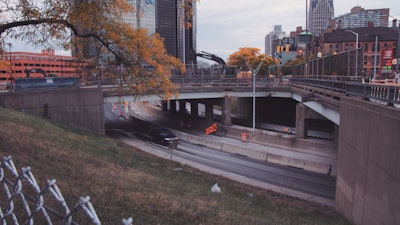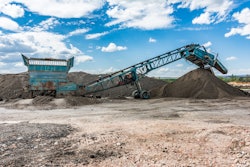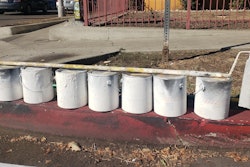
I've previously written about the Reconnecting Communities Program here, specifically about I-375 in Detroit and the community of "Black Bottom" where it was built. On Feb. 28, history was made when the Biden Administration announced the first 45 winning project applications for the program, and awarded $185 million, in total, for the year 2022.
This being the inaugural year of the first-of-its-kind program, the response appears to be overwhelmingly positive. A total of 435 project proposals were submitted from 48 different States, District of Columbia, America Samoa, and Puerto Rico. The grand total amount of funding contained in these requests was in excess of $2 billion. The entirety of the programs budget through 2026 is only $1 billion. However, it is worth noting that President Biden's original funding request for this project was $20 billion. In retrospect, it appears that his initial number was much closer to the demand American cities are expressing for these projects.
As you can see, these proposals come from every corner of the country, not just "red states" or "blue states", and it wasn't exclusive to costal cities or the midwest. What they all mostly have in common is the negative impacts of urban renewal, and the devastation of so many minority communities. However, millions of people from all walks of life and race were displaced, including countless businesses and services, during the boom in highway expansion during the post-WW2 era.  From the Reconnecting Communities Institute
From the Reconnecting Communities Institute
What Does The Program Do?
Established by President Biden's Bipartisan Infrastructure Law, the Reconnecting Communities Program provides technical assistance and funding for communities’ planning and construction projects that aim to connect neighborhoods back together by removing, retrofitting, or mitigating transportation barriers such as highways and railroad tracks.
The Department is funding transformative community-led solutions, including capping interstates with parks, removing outdated pieces of urban infrastructure, filling in sunken highways to reclaim the land for housing, converting inhospitable transportation facilities to tree-lined Complete Streets, and creating new crossings through public transportation, bridges, tunnels and trails.
"Transportation should connect, not divide, people and communities,” said U.S. Transportation Secretary Pete Buttigieg via an official press release. “We are proud to announce the first grantees of our Reconnecting Communities Program, which will unite neighborhoods, ensure the future is better than the past, and provide Americans with better access to jobs, health care, groceries and other essentials.”
In this first round of funding for the Reconnecting Communities Program, the Department is awarding 39 Planning Grants and six Capital Construction grants. Awarded projects include: From the Reconnecting Communities Institute
From the Reconnecting Communities Institute
- Buffalo, New York will receive $55.6 million to build a new highway cap and tunnel over the Kensington Expressway, a physical barrier that isolates residents on the city’s primarily Black east side. The cap will reconnect several east-west roads that the expressway severed, create greenspace, safer pedestrian crossings, and make it easier for residents to access community services and amenities like restaurants and cultural facilities.
- The City of Long Beach, California will receive $30 million to redesign West Shoreline Drive, converting the urban freeway into a landscaped, lower-speed roadway. The newly designed roadway will open-up 5.5 acres of park space and serve as a gateway to better connect residents, visitors, and workers to the Pacific Ocean, local destinations, and downtown Long Beach. The project will use a project labor agreement and economic hiring preferences to target construction jobs to underserved communities.
- Sac and Fox Tribe of Mississippi in Iowa/Meskwaki will receive $1.2 million to plan a project to cross barriers formed by US Highway 30, a highway that has created hazardous conditions for the rural, tribal community that lives to the east but works on the west side of the highway.
- Birmingham, Alabama will receive $800,000 for the city’s Transportation Capital Investment Plan, which will advance data-driven transportation recommendations to mitigate the negative impacts of existing rail and highway infrastructure on the connectivity of many of Birmingham’s historic neighborhoods, and historically Black communities especially.
- Baltimore, Maryland will receive $2 million to address the impacts caused by the construction of US 40/Franklin-Mulberry Expressway. Commonly referred to as “The Highway to Nowhere,” the never-completed project divided several historically Black communities on the city’s west side. This award will help plan for the redesign or removal of the highway to improve safety, access, opportunity, and innovation in West Baltimore. (We will be covering this particular story in more detail later this year)
The full list of Reconnecting Communities program awards can be viewed HERE.
Additionally, earlier this year, DOT provided $105 million through the INFRA program for the I-375 Community Reconnection Project in Detroit, Michigan. The I-375, which opened in 1964, paved through two prosperous and vibrant Black neighborhoods – Black Bottom and Paradise Valley. The construction of the interstate displaced 130,000 people and hundreds of small businesses. DOT awarded $105 million INFRA grant for this project converting the highway into a street-level boulevard with walkways and greenspace.
You can read our full in-depth coverage of that story here or listen to our Digging Deeper Podcast episode about it here.






![Brian Bieller Release[86]](https://img.forconstructionpros.com/files/base/acbm/fcp/image/2023/05/Brian_Bieller_Release_86_.644feae4055af.png?auto=format%2Ccompress&fit=crop&h=167&q=70&rect=0%2C159%2C1920%2C1080&w=250)













